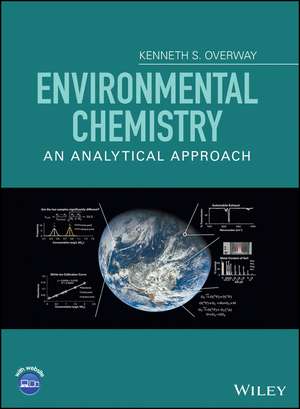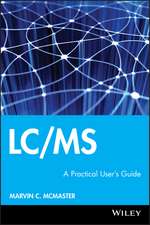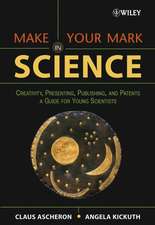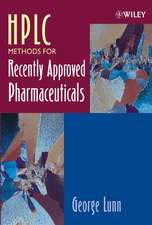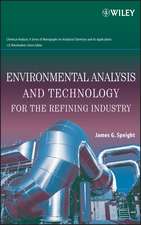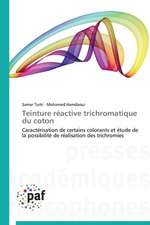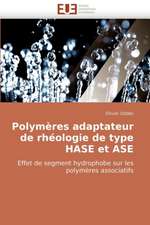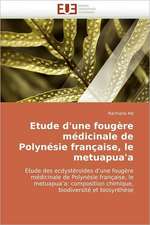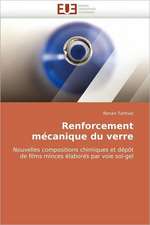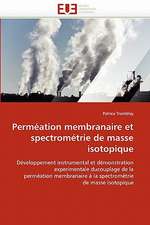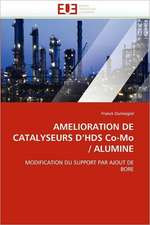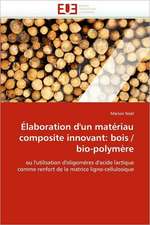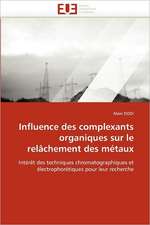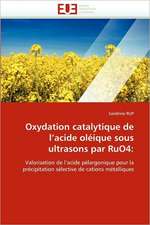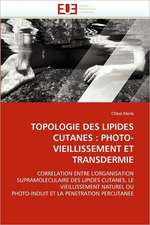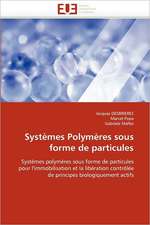Environmental Chemistry – An Analytical Approach
Autor KS Overwayen Limba Engleză Hardback – 30 mar 2017
This unique multidisciplinary 8-volume set focuses on the emerging issues concerning synthesis, characterization, design, manufacturing and various other aspects of composite materials from renewable materials and provides a shared platform for both researcher and industry.
The Handbook of Composites from Renewable Materials comprises a set of 8 individual volumes that brings an interdisciplinary perspective to accomplish a more detailed understanding of the interplay between the synthesis, structure, characterization, processing, applications and performance of these advanced materials. The Handbook comprises 169 chapters from world renowned experts covering a multitude of natural polymers/ reinforcement/ fillers and biodegradable materials.
Volume 3 is solely focused on the Physico-Chemical and Mechanical Characterization of renewable materials. Some of the important topics include but not limited to: structural and biodegradation characterization of supramolecular PCL/HAP nanocomposites; different characterization of solid bio-fillers based agricultural waste material; poly (ethylene-terephthalate) reinforced with hemp fibers; poly (lactic acid) thermoplastic composites from renewable materials; chitosan -based composite materials: fabrication and characterization; the use of flax fiber reinforced polymer (FFRP) composites in the externally reinforced structures for seismic retrofitting monitored by transient thermography and optical techniques; recycling and reuse of fiber reinforced polymer wastes in concrete composite materials; analysis of damage in hybrid composites subjected to ballistic impacts; biofiber reinforced acrylated epoxidized soybean oil (AESO) biocomposites; biopolyamides and high performance natural fiber-reinforced biocomposites; impact of recycling on the mechanical and thermo-mechanical properties of wood fiber based HDPE and PLA composites; lignocellulosic fibers composites: an overview; biodiesel derived raw glycerol to value added products; thermo-mechanical characterization of sustainable structural composites; novel pH sensitive composite hydrogel based on functionalized starch/clay for the controlled release of amoxicillin; preparation and characterization of biobased thermoset polymers from renewable resources; influence of natural fillers size and shape into mechanical and barrier properties of biocomposites; composite of biodegradable polymer blends of PCL/PLLA and coconut fiber - the effects of ionizing radiation; packaging composite materials from renewable resources; physico-chemical properties of ash based geopolymer concrete; a biopolymer derived from castor oil polyurethane; natural polymer based biomaterials; physical and mechanical properties of polymer membranes from renewable resources
Audience
This valuable reference work will be read and consulted by researchers, engineers and students both in academia and industry who are working in the field of materials science especially polymer composites/technology. Composites from renewable materials have significant industrial applications especially in the automotive, marine, aerospace, construction, wind energy and consumer goods industries.
Preț: 572.66 lei
Preț vechi: 743.72 lei
-23% Nou
109.58€ • 114.72$ • 90.67£
Carte tipărită la comandă
Livrare economică 07-21 aprilie
Specificații
ISBN-10: 1118756975
Pagini: 352
Dimensiuni: 216 x 290 x 25 mm
Greutate: 1.07 kg
Editura: Wiley
Locul publicării:Hoboken, United States
